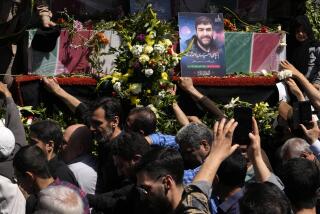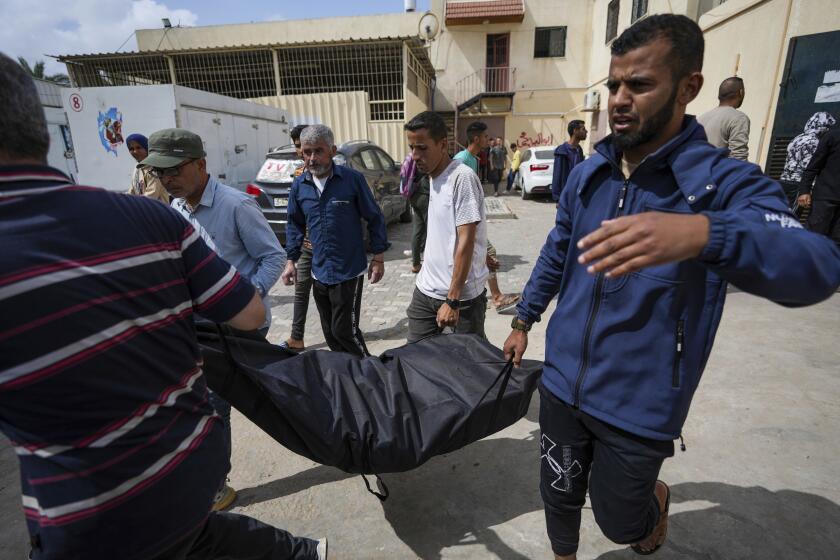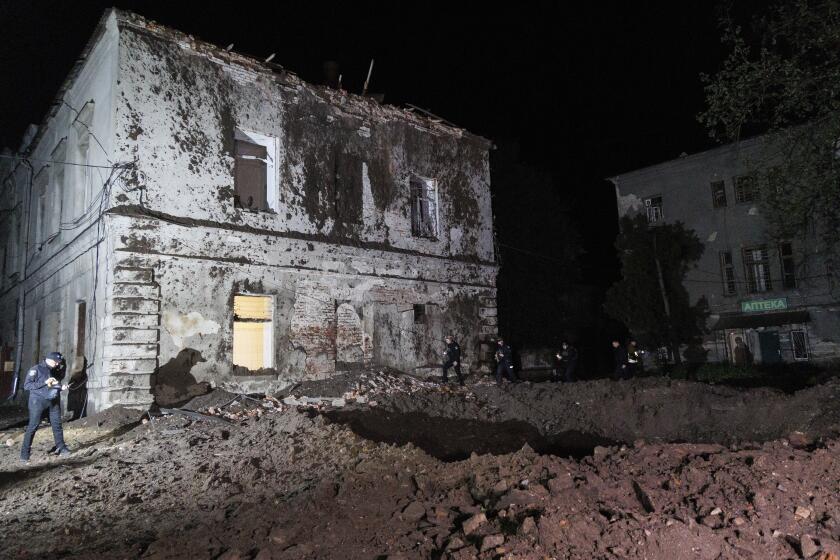U.S. considers sanctions on Iran’s central bank
The Obama administration said it was “actively” considering sanctioning Iran’s central bank in retaliation for an alleged Iranian assassination plot, a move that could severely damage Iran’s economy and potentially provoke a strong response from Tehran.
David Cohen, the Treasury undersecretary for terrorism and financial intelligence, told the Senate Banking Committee that officials were “looking very actively” at such a step and might carry it out if other nations could be persuaded to follow suit.
The blacklisting is the first specific step the administration has identified as a possible response to the alleged plot to assassinate Saudi Arabia’s envoy to the United States and to attack embassies in the U.S. and Argentina.
Such sanctions would aim to isolate the Bank Markazi, or central bank, from the world economic system by barring any firm that deals with it from doing business with U.S. financial institutions. That would make it far more difficult for Iran to sell crude oil, which funds much of the government’s activities.
Some Iranian officials have warned that they would look on such a move as an act of war.
The sanctions would probably be effective, however, only if other world powers joined in. And the administration would have to overcome arguments that the action would harm ordinary Iranians and damage the oil markets.
Cohen, who is in charge of U.S. sanctions on Iran, told the committee that if other countries joined in the blacklisting, it “could further isolate the central bank of Iran, with a potentially powerful impact on Iran.”
President Obama said Thursday that he wasn’t sure if top Iranian leaders personally knew of the plot to kill the Saudi ambassador, but he said they should be held accountable anyway.
“Even if at the highest levels there was no detailed operational knowledge,” Obama said, “there has to be accountability with respect to anybody in the Iranian government engaging in this kind of activity.”
Obama said Iran must “answer to the international community” for anyone in its government engaged in terrorist activity.
Both the George W. Bush administration and the Obama administration have looked at sanctions on the central bank in recent years, even as a series of economic strictures have been placed on Tehran in an unsuccessful attempt to convince the regime to abandon its suspected nuclear weapons program.
But officials have been hesitant to take a major step against the central bank, in part because of a reluctance to damage financial institutions that are essential to national economies.
In the aftermath of the alleged assassination plot, however, the administration is searching for another way to punish a regime that has seen more and more curbs on its ties to the world financial system. And the administration is under growing pressure from Congress, which has legislation in both houses, backed by large numbers of lawmakers, calling for sanctions on the bank.
Sen. Mark Kirk (R-Ill.) said the administration’s sanctions so far hadn’t been enough to dissuade Iran from continuing its nuclear program or sponsoring terrorism. He called on the White House to “move quickly to implement the most effective nonmilitary response: cutting off the central bank of Iran and collapsing the Iranian currency.” The move would “economically cripple” Iran, his office said in a statement.
Mark Dubowitz, a specialist on sanctions at the Foundation for Defense of Democracies, said a so-called designation of the bank would not halt all of Iran’s crude oil sales, but it would sharply raise the cost of such transactions and thus “drain the Iranian treasury.” He said Iran, the third-largest OPEC oil exporter, is a “one-crop country” that derives 50% to 75% of its government revenue from crude oil.
Congress last year slapped sanctions on Iranian banks involved in the energy sector to bar them from contact with the U.S. financial system. But U.S. officials say these banks have continued to conduct oil business because the central bank has secretly carried out the transactions on their behalf.
In his testimony, Cohen said U.S. officials were also considering another proposal many lawmakers favor: halting all sales of oil products made from Iranian crude to the U.S. market. Americans use gasoline that is refined from Iranian crude by international oil companies, which then distribute it in the United States. Cohen said Treasury economists were studying that proposal to evaluate its effect on oil markets.
Obama’s remarks were more cautious than those of some other senior U.S. officials, who have said this week that they believed that Iran’s supreme leader, Ayatollah Ali Khamenei, was aware of the bomb plot.
A senior administration officials said the president had less “leeway” in what he could say publicly but that there was no inconsistency between what he had said and the version offered by other officials.
WORLD NOW: Follow The Times’ international news coverage
More to Read
Start your day right
Sign up for Essential California for news, features and recommendations from the L.A. Times and beyond in your inbox six days a week.
You may occasionally receive promotional content from the Los Angeles Times.








